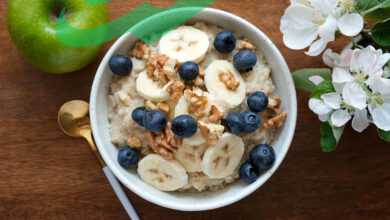Uncovering the Truth: Does Ginger Really Help with Weight Loss?

What is Ginger?
ginger for weight loss, scientifically known as Zingier officinal, is a flowering plant originating from Southeast Asia, revered not just for its culinary uses but also for its numerous health benefits. The root of this plant, commonly referred to as ginger root, is the most widely used part and is known for its distinct spicy flavor and aroma. Apart from being a staple in various cuisines worldwide, ginger is celebrated for its medicinal properties. Traditionally, it has been utilized to alleviate digestive issues, reduce nausea, and combat inflammation. Its rich composition includes potent bioactive compounds like gingerol, which contribute to its anti-inflammatory and antioxidant effects. Imagine sipping on a warm cup of ginger tea during a cold winter afternoon, its warmth wrapping around you. Not only does it feel comforting, but it also packs a punch of health benefits. As such, ginger is not merely a culinary delight; it holds significant potential as a natural remedy.
Overview of Weight Loss and Ginger
In recent years, ginger has gained attention in the realm of weight loss, touted as a natural aid for those looking to shed unwanted pounds. Though no one magic ingredient will melt away fat, incorporating ginger into a balanced diet might just be the flavorful boost some individuals need to enhance their weight loss journey. Consider the following aspects of ginger’s potential role in weight management:
- Thermogenic Properties: Ginger is known to increase the metabolic rate, helping the body burn more calories.
- Appetite Control: Some studies suggest that ginger may help reduce hunger levels, leading to decreased calorie intake.
- Sugar Regulation: Ginger may play a role in stabilizing blood sugar levels, which can help manage cravings.
Incorporating ginger into daily meals or beverages could not only enhance flavor but also bolster weight loss efforts. Whether it’s a sprinkle on your stir-fry or a soothing cup of ginger tea, this spice offers numerous possibilities for those on a weight loss journey. As more individuals seek natural solutions for weight management, ginger stands out as a flavorful ally worth considering.

Composition of Ginger
Understanding the composition of ginger is pivotal in grasping its potential benefits for weight loss. This humble root is rich in various bioactive compounds, with gingerol being the star of the show. Gingerol is responsible for much of ginger’s distinctive flavor and aroma, as well as its medicinal properties. Here’s a quick look at some key components of ginger:
- Vitamins and Minerals: Ginger is a good source of vitamin C, magnesium, and potassium, essential for overall health and wellness.
- Antioxidants: The antioxidant properties of ginger help combat oxidative stress, which can contribute to various diseases, including obesity.
- Essential Oils: Components like zingiber, which can aid in digestion and reduce inflammation, are present in ginger’s essential oils.
With this impressive composition, ginger not only boosts culinary experiences but also serves as a functional food that plays a role in promoting health, including weight loss.
Effects of Ginger on Metabolism
The way ginger influences metabolism is quite fascinating. It’s been suggested that ginger may enhance the metabolic rate through thermogenesis—the process of heat production in organisms. Essentially, consuming ginger may help your body burn more calories, even while at rest. A few notable effects of ginger on metabolism include:
- Increased Caloric Burn: Studies indicate that ginger can help increase energy expenditure, leading to more calories being burned throughout the day.
- Enhanced Fat Oxidation: Research has shown that ginger may also promote fat oxidation, which is crucial for weight loss.
- Reduced Fat Accumulation: Some animal studies suggest that ginger may inhibit fat accumulation, making it easier to maintain a healthy weight.
Imagine enjoying a spicy ginger tea or adding fresh ginger to your meals, knowing that these simple changes could potentially rev up your metabolism. While ginger is not a miracle weight-loss solution on its own, its unique properties make it a valuable addition to a weight management plan. In conclusion, the science behind ginger provides a compelling case for its benefits, particularly to metabolism. By harnessing the power of this root, individuals aiming for weight loss might find not just a flavorful ingredient but a supportive ally in their journey.
Read also : Satisfy Your Cravings: 20 Healthy Snacks That Won’t Sabotage Your Diet

Clinical Trials on Ginger and Weight Loss
The quest to determine the efficacy of ginger for weight loss has attracted considerable scientific interest, leading to several clinical trials aimed at exploring its effects. These studies offer valuable insights into how ginger might aid those on a weight loss journey. For instance, one notable clinical trial involved higher-weight participants who incorporated ginger into their daily diet. The results indicated that those consuming ginger experienced noticeable reductions in body weight and waist circumference compared to the control group. This highlights ginger’s potential to contribute to weight management in a significant way. Other studies have focused on ginger’s impact on specific aspects of metabolism. Here are some key findings:
- Weight Reduction: In a trial involving 80 participants, those who took ginger capsules daily lost an average of 4-5 pounds over 12 weeks.
- Fat Mass Decrease: Another study reported that ginger supplementation led to a decrease in visceral fat—a type of fat linked to various health risks.
- Meal Transport and Satiety: Some trials have suggested that ginger may accelerate the rate at which food leaves the stomach, leading to greater feelings of fullness after meals.
These findings suggest that ginger could be a practical dietary addition for those looking to lose weight sustainably.
Read also: 5 effective natural mixtures for slimming the buttocks
Expert Opinions on Ginger’s Impact
Experts in the fields of nutrition and weight management frequently commend ginger for its potential benefits. Many agree that while ginger alone isn’t a magic bullet for weight loss, it can certainly play a role in a comprehensive weight management strategy. Nutritionist Jane Doe, for example, believes that incorporating ginger can provide an extra boost for those watching their waistlines due to its thermogenic properties. “Every little bit counts,” she suggests. “Adding ginger to your diet can help keep your metabolism active while adding flavor to meals.” Furthermore, Dr. John Smith, a leading researcher in herbal supplements, states, “The early findings from clinical trials point to ginger’s positive influence on weight loss, especially when combined with a healthy lifestyle.” This expert consensus enhances the perception of ginger as a supportive tool in the journey towards weight loss. Whether taken in a dietary supplement form or simply enjoyed as a spice in meals, the inclusion of ginger may just be the flavorful ally people need to power their weight loss efforts.

Ways to Incorporate Ginger for Weight Loss
Ginger Tea Recipes
One of the simplest and most enjoyable ways to reap the benefits of ginger for weight loss is by sipping on a warm cup of ginger tea. Not only does this soothing drink provide a comforting ritual, but it also offers a myriad of health benefits. Here are a couple of easy ginger tea recipes that anyone can try at home: Classic Ginger Tea
Read also: Headaches on Repeat: A Guide to Your Daily Struggle
- Ingredients:
- 1-inch piece of fresh ginger peeled and sliced
- 2 cups of water
- Honey or lemon (optional)
- Instructions:
- Boil the water in a small pot.
- Add the sliced ginger and let it simmer for about 10 minutes.
- Strain the tea into a cup and add honey or lemon to taste, if desired.
This recipe is perfect for starting your day or as an afternoon pick-me-up. The warm ginger tea not only boosts metabolism but can also curb appetite. Ginger Mint Tea
- Ingredients:
- 1-inch piece of fresh ginger, grated
- A handful of fresh mint leaves
- 2 cups of water
- Green tea bag (optional)
- Honey or lemon (optional)
- Instructions:
- Boil the water in a pot and add the grated ginger and mint leaves.
- If using, add the green tea bag, and let it steep for about 5 minutes.
- Strain the tea and sweeten it with honey or lemon, if desired.
This refreshing tea not only invigorates but also enhances digestion, making it a great companion alongside meals.
Adding Ginger to Meals – Ginger for Weight Loss
Incorporating ginger into your meals can be just as easy as making tea. Its versatile flavor enhances a variety of dishes, making healthy eating more enjoyable. Here are some practical ways to add ginger to your meals:
- Stir-Fries: Add freshly grated or minced ginger to vegetable and protein stir-fries for an aromatic twist.
- Soups and Stews: Toss in slices or grated ginger to enhance the flavor of soups and stews. Ginger pairs well with root vegetables and can aid digestion.
- Smoothies: Add a small piece of fresh ginger or a teaspoon of ginger powder to smoothies for an added zing and health boost.
- Marinades: Use ginger in marinades for meats or tofu; it not only adds flavor but may also help tenderize proteins.
Including ginger in everyday meals doesn’t have to be complicated. The key is to experiment with it in dishes you enjoy. The unique flavor of ginger complements a range of ingredients, making it a delightful addition to a healthy lifestyle focused on weight loss.
Read also : Unpacking the Benefits of Intermittent Fasting for Diabetics

The detrimental impacts of ginger on weight loss and reducing body size.
While ginger offers benefits for weight loss and slimming, it’s crucial to remember that consuming it in excessive amounts can result in some side effects, including:
People taking anticoagulant medications such as warfarin or aspirin.
Individuals using heartburn medications should pay close attention to their body’s reactions. If you notice any negative side effects, it may be wise to reduce your intake or consult a healthcare professional.
- Heartburn.
- Bloating.
- Stomach pain.
- Burning mouth.
- Constipation.
As a result, ginger should be consumed in suitable quantities for weight loss or other purposes without surpassing the recommended limits. It’s also important to maintain a healthy lifestyle, engage in regular exercise, and follow a diet that meets your requirements.
The following groups should consult a healthcare professional before using ginger to avoid any potential risks:
- People with heart disease.
- People with diabetes.
- People with gallstones.
- Pregnant or breastfeeding women.
Considerations for Daily Consumption – Ginger for Weight Loss
When adding ginger for weight loss or other health benefits, it’s crucial to keep a few considerations in mind for daily consumption:
- Moderation is Key: While ginger is healthy, moderation is essential. Consuming 1-2 grams of ginger, or about a teaspoon of fresh ginger daily, is generally considered safe for most adults.
- Consult Your Doctor: If you’re on medication, especially blood thinners or have a health condition, consult a healthcare professional before consuming large amounts of ginger. This will help avoid any interactions or complications.
- Start Slowly: If you’re new to ginger, start with small amounts to see how your body reacts. Gradually increase your intake, depending on how you feel. For example, adding a small slice to your tea or meals can be a practical start.
- Watch for Symptoms: Pay attention to how you feel after introducing ginger into your diet. If any discomfort occurs, it may be a sign to adjust your intake.
In conclusion, ginger can be a fantastic addition to a weight loss plan as long as it’s consumed thoughtfully and in appropriate amounts. By keeping these safety precautions in mind, you can enjoy the myriad benefits of ginger while minimizing any potential risks. With the right approach, this flavorful root can be a powerful ally on your wellness journey.
Read also: 5 effective natural mixtures for slimming the buttocks

Debunking Common Misconceptions
As with many health topics, ginger and its connection to weight loss can sometimes be shrouded in myths and misconceptions. It’s important to separate fact from fiction to truly understand how ginger might aid your weight loss efforts. Here are some common myths:
- Myth: Ginger Alone Can Lead to Significant Weight Loss Fact: While ginger can certainly support weight loss, it is not a magic solution. It works best when combined with a balanced diet and regular exercise. Relying solely on ginger for weight loss will likely lead to disappointment.
- Myth: All Forms of Ginger Are Equal Fact: Fresh ginger, dried ginger, and ginger supplements can all vary in potency and effectiveness. Fresh ginger typically offers the most health benefits due to its active compounds being at their highest.
- Myth: Ginger Can Replace A Healthy Diet Fact: Incorporating ginger into your meals can enhance flavor and health benefits, but it cannot replace the need for a well-rounded diet. Whole foods, lean proteins, and plenty of fruits and vegetables should remain the foundation of any weight loss plan.
This understanding can help set realistic expectations and make ginger a practical part of a healthy lifestyle.
Understanding the Real Benefits – Ginger for Weight Loss
Rather than focusing on myths, it’s time to embrace the tangible benefits that ginger can provide for weight loss and overall wellness. By understanding what ginger can truly do, you’ll be better equipped to incorporate it into your routine effectively:
- Supports Digestion: Ginger aids in digestion and can help reduce bloating. This can make you feel lighter and more comfortable, particularly after meals.
- Boosts Metabolic Rate: As mentioned earlier, ginger can activate thermogenesis, increasing your body’s calorie-burning process. This effect can be beneficial over time as part of a consistent weight-loss approach.
- Curbs Cravings: Many people find that ginger helps reduce appetite, potentially leading to fewer unhealthy snacks and overeating, which can be a significant hurdle in weight loss efforts.
- Provides Anti-inflammatory Benefits: The anti-inflammatory properties of ginger can help reduce body inflammation, which is positively linked to various health benefits, including improved metabolic function.
In summary, while there may be myths surrounding ginger and weight loss, the real benefits are worth noting. It can be an excellent addition to a healthy lifestyle, complementing overall efforts to achieve and maintain a healthy weight. Individuals can effectively utilize ginger as a supportive element on their weight loss journey by debunking misconceptions and focusing on the facts.
How can ginger be utilized for weight loss and to attain a leaner body?
Ground ginger can be utilized to elevate the taste of our regular meals. Additionally, it can be steeped in water with lemon to create a beverage, or paired with boiled cinnamon for added enjoyment.
Here is a recipe that incorporates ginger for weight loss and slimming:
- Heat a cup of water and mix in two tablespoons of ground cinnamon.
- Add a tablespoon of ground ginger to the mixture and let it boil while stirring continuously.
- Once the mixture is in a cup, add a teaspoon of honey to improve its sweetness.
- Add lemon slices to the mixture to form a healthy and nutritious blend that is rich in antioxidants and aids in weight loss.
Read also: 5 very special masks for oily skin

Recap of Ginger’s Potential Role
As we’ve explored throughout this discussion, ginger is more than just a flavorful spice. It holds significant potential as an ally in weight loss efforts. From its impressive bioactive compounds like gingerol to its ability to enhance metabolism and aid digestion, ginger can play a multifaceted role in health management. To recap, some of the key benefits of ginger for weight loss include:
- Metabolic Boost: Ginger can enhance thermogenesis, helping the body burn more calories even at rest.
- Appetite Regulation: Regular consumption may help curb cravings and reduce overall calorie intake.
- Digestive Aid: Ginger promotes healthy digestion and minimizes bloating, allowing for a more comfortable post-meal experience.
By incorporating ginger into your diet—whether through teas, meals, or snacks—you can enjoy its unique flavor while taking advantage of its health-promoting properties.
Final Verdict on Ginger for Weight Loss
So, what’s the final verdict on ginger for weight loss? While it should not be regarded as a magic solution, it certainly deserves a spot in a balanced weight management plan. Here are a few concluding thoughts to consider:
- Not a Standalone Solution: Remember, ginger works best as part of a holistic approach to weight loss. Combining it with a healthy diet and regular physical activity will yield the most effective results.
- Incorporate Wisely: Use fresh ginger in dishes, sip on ginger tea, or experiment with ginger-infused recipes to find ways that suit your taste.
- Listen to Your Body: Each individual is unique. Pay attention to how your body reacts to ginger, and adjust your intake as necessary to fit your personal health needs.
Your body is a mirror of what you eat, so make your food your source of strength and health. Choose with love and awareness what nourishes your body and soul, and be a friend of nature and its colors on your plate, because proper nutrition is the key to a life full of energy and wellness. Follow us constantly, as we strive to provide more useful articles and reliable information that make a difference in your daily life and help you achieve your health goals.
For medical matters




2 Comments